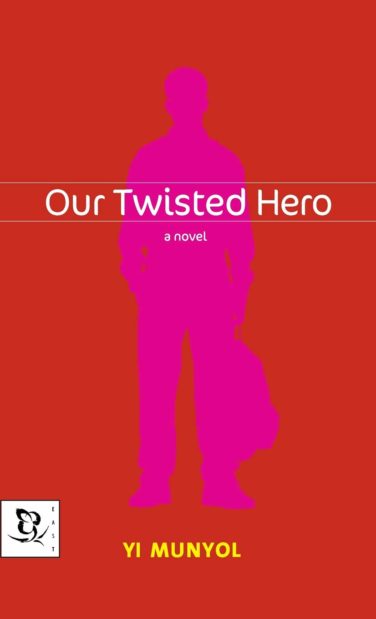 By YI MUNYOL (Hyperion; 1987/2001)
By YI MUNYOL (Hyperion; 1987/2001)
Korean culture has of late received a lot of attention in the western world, but that wasn’t case in the early aughts. Hence, the 2001 English language publication of the 1987 Korean novel OUR TWISTED HERO, written by Yi Munyol and translated by Kevin O’Rourke, is deserving of praise. An uncompromising account of bullying and conformity in a Korean school, it’s a very culture-centric novel in many respects (the use of capital punishment by teachers is one element that will probably raise eyebrows on this side of the world), yet its themes are quite universal, and raised with an intelligence and insight that favorably recall LORD OF THE FLIES—or, better yet, THE CHOCOLATE WAR.
The narration is accomplished by Han, a boy who moves from Seoul, where he attended a prestigious elementary school, to a “rather undistinguished school in a small town.” This place is ruled by Om Sokdae, a tyrant whose behavior is encouraged by the school’s higher-ups and also Han’s own father (about whom Han writes “It’s only now that I think I understand him and the bitter taste of humiliation, the sense of powerlessness he was experiencing…”). Han attempts to usurp Sokdae’s reign of terror by spreading rumors and other nefarious schemes, but is rebuffed by the teacher, and winds up being branded a troublemaker. Han also becomes an outcast among his fellow students, although that changes when he finally succumbs to Sokdae’s bullying, thus improving his social status greatly.
Ultimately the true threat to Sokdae’s evil arrives in the form of a new teacher. It’s the latter, a young instructor who recognizes what’s going on and endeavors to put an immediate stop to it, who empowers the boys to finally stand up to their tormentor.
This novel is interesting for its smooth, unaffected prose and blunt insights. As a totalitarian parable it works smashingly well (showing, not for the first time, that child-centered school-set narratives are excellent stand-ins for grown-up politics). Also noteworthy is the manner in which Munyol presents Han’s inherently snooty nature. Han is a sympathetic protagonist, but he’s far from the unsullied victim he likes to proclaim himself. He feels superior to his fellows, and has no trouble engaging in questionable practices in order to further his own standing (with the “Twisted Hero” of the title having more than one meaning). Reviewers have of course largely ignored this aspect of the book, but I say Han’s shortcomings are an important component, and make for a far more complex and multi-layered account than the simplistic nerds-vs.-bullies narrative so many commentators have wrongly described.
